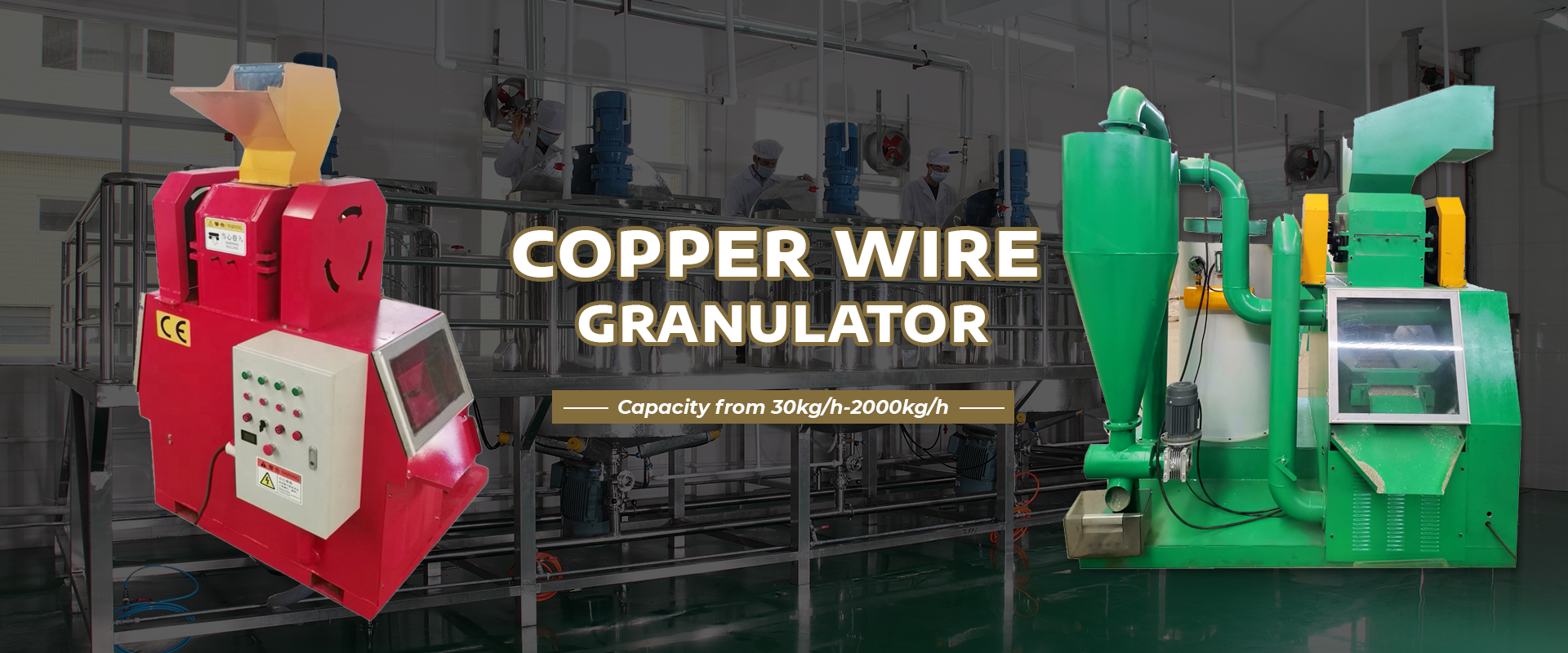

नवम्बर . 05, 2024 14:18 Back to list
The Importance of Cable Granulation in Recycling
In an era where environmental sustainability is a pressing concern, effective recycling practices have become paramount. One key area that has gained significant attention is cable granulation. This process involves the recycling of copper and aluminum cables, which are widely used in various sectors, including electronics, automotive, and construction. Understanding cable granulation not only highlights its environmental benefits but also underscores its economic significance.
What is Cable Granulation?
Cable granulation is a recycling process that separates valuable metals from plastic materials in cables. It typically involves multiple steps, starting from the collection of scrap cables to the granulating and separating of their components. The process begins by manually or mechanically stripping the cables to remove insulating materials. Once stripped, the wires are shredded into small pieces, creating a granulate. This mixture is then processed through a series of mechanical processes, including air classification and magnetic separation, to isolate metals from non-metal components.
Environmental Benefits
The environmental impact of cable granulation is profound. Traditional disposal methods for waste cables often involve incineration or landfilling, both of which pose serious environmental hazards. Burning cables releases toxic fumes and harmful chemicals into the atmosphere, while landfilling contributes to soil contamination and depletion of land resources. Conversely, cable granulation effectively mitigates these issues by diverting waste from landfills and conserving natural resources.
By recycling metals like copper and aluminum, cable granulation reduces the need for mining new materials. Mining operations are energy-intensive and often lead to habitat destruction, water pollution, and significant carbon emissions. Thus, the recycling of metals contributes to a lower carbon footprint and promotes a more sustainable circular economy.
Economic Significance

Beyond environmental advantages, cable granulation has substantial economic implications. The global demand for metals, particularly copper, is ever-increasing due to its essential role in various industries, including renewable energy, telecommunications, and construction. Recycling cables not only provides a sustainable source of these metals but also helps stabilize their prices in volatile markets.
Moreover, the cable recycling industry creates jobs and fosters local economies. From collection to processing, various stages of the granulation process require a skilled workforce. As awareness of the importance of recycling grows, so does the potential for investment in new technologies and infrastructure dedicated to cable recycling. This, in turn, can lead to further job creation and economic growth.
Challenges and Technological Innovations
Despite its benefits, the cable granulation process is not without challenges. One significant hurdle is the initial collection of scrap cables, which often requires coordination between multiple stakeholders, including businesses and recycling facilities. Ensuring a consistent supply of scrap materials can be difficult, especially in regions with less developed recycling systems.
Technological advancements, however, offer promising solutions to these challenges. Automation and state-of-the-art machinery have revolutionized the cable granulation industry by increasing efficiency and safety. Advanced shredders, air classifiers, and magnetic separators enhance the overall recovery rate of metals, resulting in higher profitability and reduced operational costs. Investment in research and development can lead to even more innovative approaches, further improving the cable recycling process.
Conclusion
Cable granulation plays a crucial role in the sustainable management of electronic waste. By converting scrap cables into valuable raw materials, this process contributes to environmental protection and economic development. As we move towards a more circular economy, it is essential to recognize and support the value of cable recycling. Stakeholders from the public, private, and non-profit sectors must work collaboratively to enhance recycling practices, invest in innovative technologies, and raise awareness about the importance of cable granulation. Only then can we fully harness its potential for a cleaner, more sustainable future.
Latest news
Troubleshooting Common Eddy Separator Problems
NewsJul.04,2025
The Role of Metal Recycling Plants in Circular Economy
NewsJul.04,2025
The Impact of Recycling Line Pickers on Waste Management Costs
NewsJul.04,2025
Safety Features Every Metal Shredder Should Have
NewsJul.04,2025
How Industrial Shredders Improve Waste Management Systems
NewsJul.04,2025
How Cable Granulators Contribute to Sustainable Recycling
NewsJul.04,2025